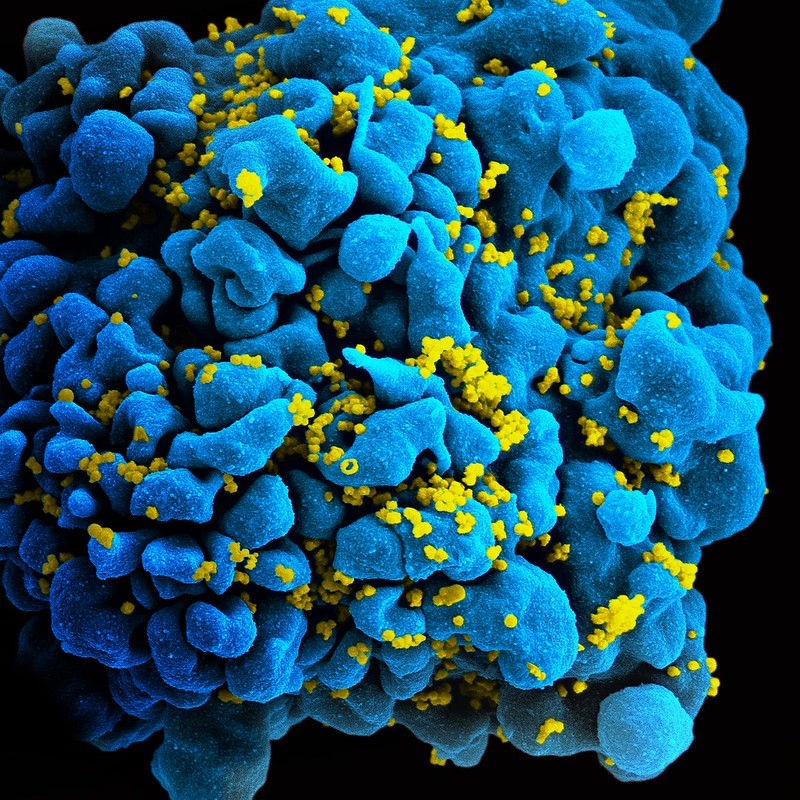
Press release
Tuesday, August 31, 2021
An investigated HIV vaccine tested in the “Imbokodo” clinical trial conducted in sub-Saharan Africa did not pose safety concerns, but did not provide sufficient protection against HIV infection, according to a primary analysis of the study data. The Phase 2b concept test study, which began in November 2017, enrolled 2,637 women aged 18 to 35 from five countries.
Imbokodo primary analysis was performed 24 months after participants received the first vaccines. The main endpoint of the study was based on the difference in the number of new HIV infections between the placebo and vaccine groups from the seventh month (one month after the third vaccination period) to the 24th month. number of new HIV infections among study participants who were randomly assigned to receive the placebo or research vaccine, statisticians found that 63 participants who received the placebo and 51 participants who received the vaccine experimentally acquired HIV infection. Therefore, the efficacy of the research vaccine was 25.2% (95% confidence interval of vaccine efficacy -10.5% to 49.3%). The study vaccine was found to be safe, with no associated serious adverse events. Study participants are informed of the findings and will have follow-up visits with the study researchers. Further analysis of the Imbokodo study will be continued and it is believed that the study provided sufficient data for the investigation of immune correlates.
The Imbokodo study, also known as HVTN 705 / HPX2008, is sponsored by Janssen Vaccines & Prevention BV, which is part of the Janssen Pharmaceutical Companies of Johnson & Johnson. It is funded by two major partners, the Bill & Melinda Gates Foundation (BMGF) and the National Institute of Allergy and Infectious Diseases (NIAID), which is part of the National Institutes of Health.
“The development of a safe and effective vaccine to prevent HIV infection has proven to be a formidable scientific challenge,” said NIAID Director Anthony S. Fauci, MD. the knowledge learned from the Imbokodo trial and to continue our efforts to find a vaccine that protects against HIV ”.
The researched vaccine tested in the Imbokodo study is based on “mosaic” immunogens: components of the vaccine designed to induce immune responses against a wide variety of global HIV strains. The vaccine candidate used a common cold virus strain (adenovirus serotype 26 or Ad26), designed not to cause disease, to administer four antigens (quadrivalent mosaics) to stimulate an immune response. Previous research indicated that the vaccine was well tolerated and could induce an immune response to HIV. Imbokodo participants received four vaccines over a one-year period. This included four doses of the investigated quadrivalent vaccine. The final two doses were administered in conjunction with doses of an HIV protein, clade C gp140, and an adjuvant to boost immune responses. Participants were followed for at least two years. The main analysis occurred one year after the final vaccination of the last study participant.
Study participants were offered pre-exposure prophylaxis drugs to prevent HIV infection during the clinical trial. Women who acquired HIV infection were referred for medical attention and offered antiretroviral treatment.
NIAID provided funding for the preclinical and early-stage clinical development of the research mosaic HIV vaccine, which was initially developed by the laboratory of Dan H. Barouch, MD, Ph.D., at Beth Israel Deaconness Medical Center, along with Janssen and other partners. . The mosaic immunogens used in the experimental vaccine were designed by the Los Alamos National Laboratory. The Imbokodo study was conducted by the NIAID-funded HIV Vaccine Testing Network (HVTN), based at the Fred Hutchinson Cancer Research Center in Seattle. The U.S. Army Medical Research and Development Command provided additional support for the trial; and the Ragon Institute of MGH, MIT, and Harvard. The South African Medical Research Council helped implement the study in South Africa.
In addition to their main review of the Imbokodo study, partners, in consultation with an independent data surveillance and safety board (DSMB), determined that a complementary phase-in HIV vaccine study should be continued. 3 called Mosaic (HVTN 706 / HPX3002). This clinical trial is testing the safety and efficacy of an HIV vaccine in different research among a different patient population (men who have sex with men and transgender populations) and in different geographic locations (America and Europe) that the Imbokodo trial. It is estimated that the Mosaic study will be completed in March 2024.
NIAID conducts and supports research — at NIH, throughout the United States, and around the world — to study the causes of infectious and immune-mediated diseases and to develop better means to prevent, diagnose, and treat these diseases. Press releases, fact sheets and other NIAID-related materials are available on the NIAID website.
Regarding the National Institutes of Health (NIH):
NIH, the country’s medical research agency, includes 27 institutes and centers and is a component of the U.S. Department of Health and Human Services. NIH is the leading federal agency that conducts and supports basic, clinical, and translational medical research and investigates the causes, treatments, and cures for common and rare diseases. For more information about NIH and its programs, visit www.nih.gov.
NIH … Turning discovery into health®